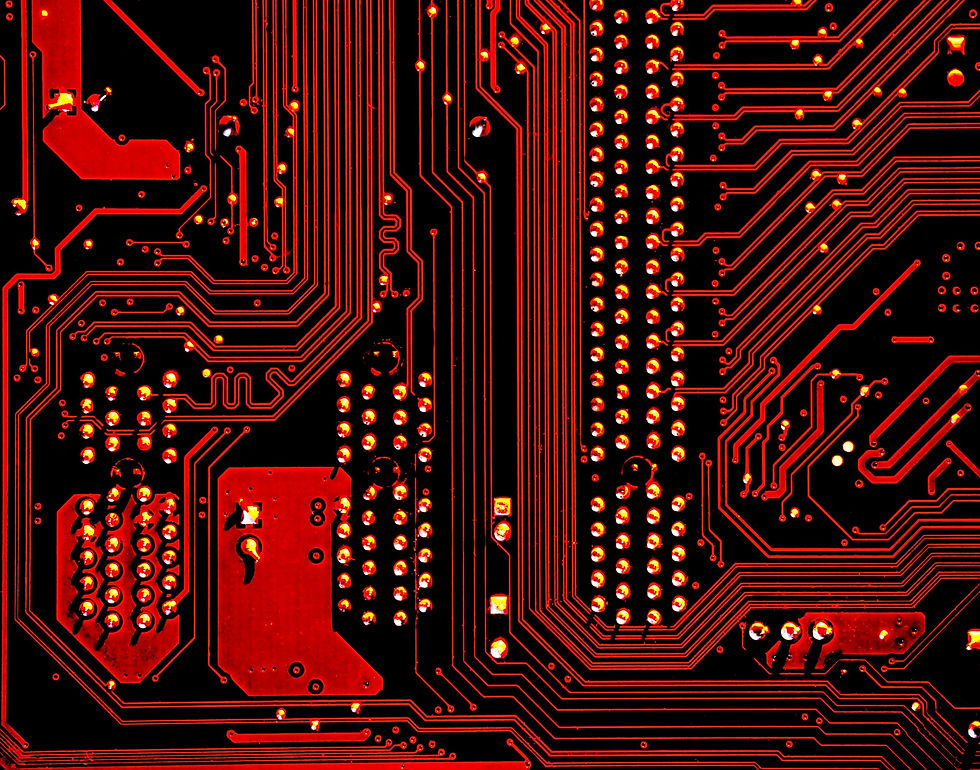The Evolution of Technological Terminology: From Daguerreotypes to Digital Consciousness
- Eddie Reilly
- Mar 22, 2025
- 3 min read
Words evolve hand in hand with technology, reflecting how innovations mould human experience. The daguerreotype was a spectacular breakthrough in capturing ephemeral images on silver plates exposed to mercury fumes. This act of alchemical brilliance produced reflections of the real world for the first time. It is difficult to conceptualise just how staggering this step forward would have been. Louis Daguerre’s seemingly magical process is now a relic of history, its name replaced by the simple, universal camera. Likewise, the horseless carriage lost its original logical description to become the automobile, morphing into motorcar and finally just the car. These shifts reflect a similar pattern: when an invention is novel, how we refer to it often emphasizes what makes it different or unique. But as it becomes assimilated into daily life, the terminology often becomes more streamlined. This process has repeated itself for centuries, but nowhere has it occurred more rapidly than in the digital age.
Few people would mention the Digital Superhighway nowadays. The World Wide Web, once a memorable tongue twister, is now simply referred to as the internet, although technically they are distinct entities. Surfing the web, once a futuristic expression pointing to the free-flowing exploration of the early internet age, has been replaced by browsing, a more utilitarian metaphor. Googling as a verb is an outlier in many ways, but it reflects the vast reach and unprecedented global dominance of the search engine.
One of the most fascinating areas for linguistic transformation today is Artificial Intelligence (AI). The term was first used in 1956 by John McCarthy, a computer scientist and one of the founding fathers of the technology. Artificial Intelligence conveys the idea of a machine’s attempt to replicate human intelligence. However, as AI becomes more adept, powering large language models, predictive analytics, medical diagnoses, and even creativity, the use of ‘artificial’ may well become outdated. AI will no longer be a simulation of intelligence but an active force driving decision-making and problem-solving. A term such as Augmented Intelligence would convey the idea of AI as a tool that enhances human cognition instead of trying to replicate or replace it.
The terminology for AI could take a more radical shift. As it develops towards self-learning, autonomy, and problem-solving at scales beyond human capability, we may see terms like Hyper Cognition emerge, acknowledging its ability to reason, adapt, and evolve beyond traditional programming constraints. Neural Computing could become the dominant descriptor, reflecting its deep-learning architectures that mirror human cerebral processes. Some may begin referring to Evolved Intelligence, recognizing that AI, like biological intelligence, continuously refines itself. If AI reaches a point where it demonstrates independent thought and self-awareness, we may even speak of Digital Consciousness, a term that transcends mere computation to suggest a new, non-biological form of self-awareness. At that stage, the distinction between "artificial" and "real" intelligence may start to dissolve altogether.
This renaming process is inevitable. Just as the telephone was once called the speaking telegraph and the automobile was referred to as a horseless carriage, within the coming years, we will probably cease to call AI by its current name. Instead, they may recognize it simply as Intelligence, an emergent form of cognition that is as natural in its time as human intelligence is in ours. From moving pictures to films, wireless telegraphs to radios, and machine learning to whatever term best defines its essence, language evolves alongside technological progress. A century from now, today’s terminology will seem as antiquated as steam engines and phonographs, vestiges of an earlier era superseded by more precise definitions. The term Artificial Intelligence itself will very soon be viewed as a misnomer, as what we now consider artificial becomes a crucial part of the learning process.





👍